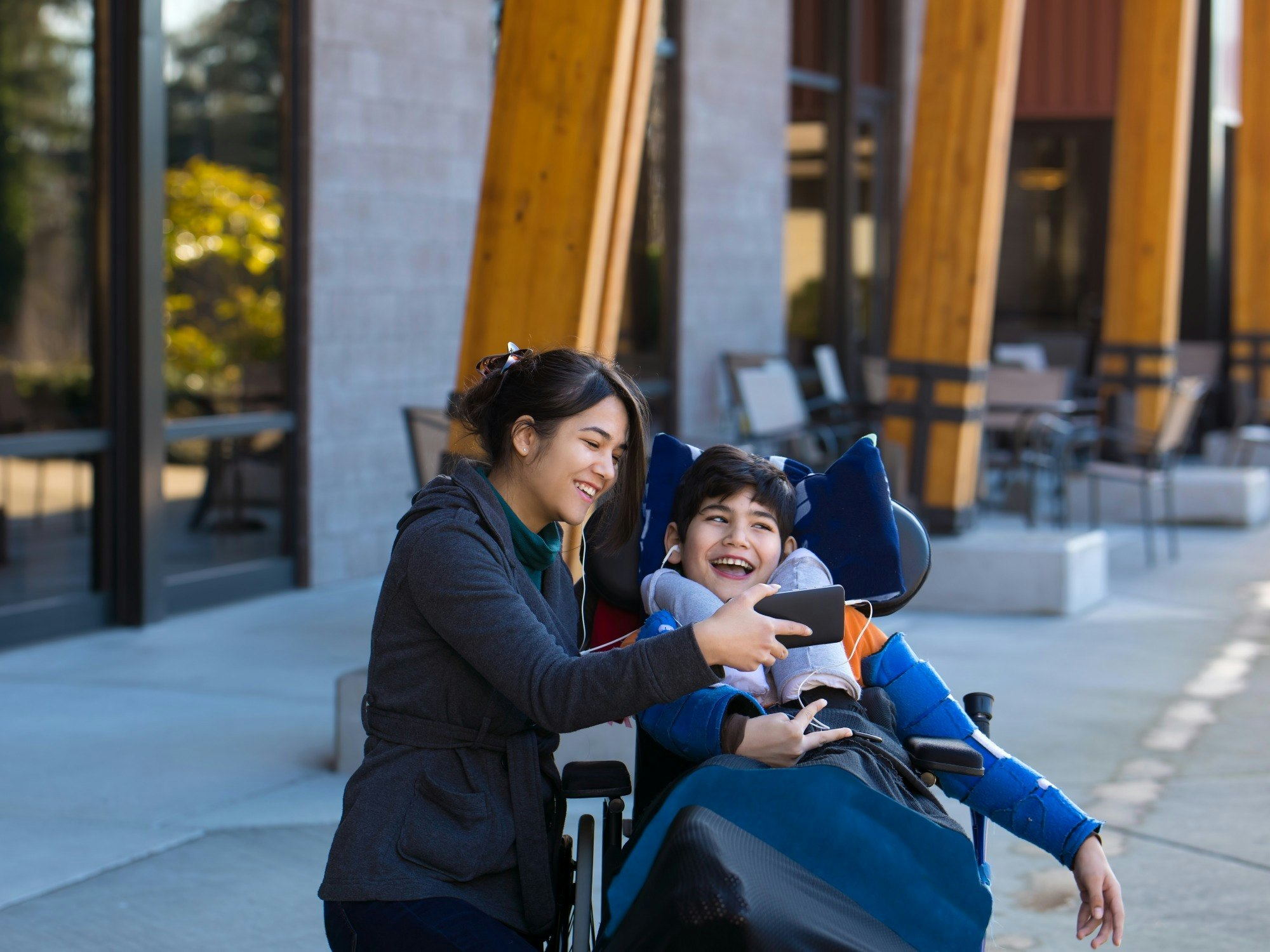Disability workers face uncertainty and risk of illness due to COVID-19, survey says

A new national survey of Disability Support Workers (DSWs) has found that workers are facing financial hardship, uncertainty and risking illness during the ongoing COVID-19 pandemic.
Researchers from the University of Melbourne Disability and Health Unit and the University of New South Wales Canberra conducted an online survey of 357 Australian DSWs between late May and June 2020 about their experiences working during the pandemic.
Respondents ranged from 18-75 years of age, and 83 percent were women.
DSWs were asked about how they managed physical distancing, COVID-19 infection control training, access to Personal Protective Equipment (PPE), testing, who they worked with and where they provided support as well as the financial and psychological impacts of working during COVID-19.
Of those who took time off from work due to illness, only 47 percent were paid, which researchers say reflects the workforce’s casual nature.
Thirty-four percent of respondents said they faced financial difficulties like not being able to pay an electricity, gas or phone bill on time or being unable to pay their rent.
Researchers noted that like aged care and other health care workers, DSWs are not able to physically distance while working.
The survey noted that DSWs worked with an average of six people with disability in the week before the survey.
The survey also found that there has been a lack of infection control training, high psychological distress levels, as well as concerns about illness. Other findings include:
-
Twenty-three percent of DSWs had not received any COVID-19 infection control training. Of the 77 percent who did receive training, 48 percent would like more.
-
Twenty-three percent of respondents have been tested for COVID-19 infection, and 11 percent wanted to be tested.
-
Fourteen percent worked for more than one provider, and six percent worked in both the aged care and disability sector.
-
Twenty-seven percent cancelled shifts because they were worried about COVID-19 infection and 35 percent had shifts cancelled by clients or employers due to fear of COVID-19.
-
Sixteen percent reported high psychological distress levels consistent with serious probable mental illness.
The researchers made 11 recommendations to help reduce the impact of COVID-19, including updating Personal Protective Equipment (PPE) guidelines, making sure DSWs receive required training and ensuring there is access to pandemic leave.
You can read the recommendations made and the full report here.
Workers facing “very real difficulties”
With COVID-19 cases rising across Victoria and New South Wales, the threat of COVID-19 continues, and Disability Support Workers are in a serious situation.
Lead researchers Dr Ashley McAllister, Research Fellow in Disability and Health and Professor Anne Kavanagh, Chair of Disability and Health at the University of Melbourne, say that the situation in Victoria is serious with COVID-19 cases being recorded among people with disability in group homes and among support workers.
Professor Kavanagh says, “This presents very real difficulties for workers with little or no training who now have to implement meticulous infection control procedures and use full PPE.
“Some people with disability, particularly those with psychosocial, autism and/or intellectual disabilities, may find it very challenging to self-isolate or quarantine and may have difficulties with personal hygiene and physical distancing.
“Further, workers are themselves having to self-isolate or quarantine because they are infected or are a close contact of a case. This means that familiar workers are no longer available to support infected clients at a very stressful time.”
Worried about “protecting the people I work with.”
Disability Support Worker, Kristy, says that the way she works has completely changed since the outbreak of COVID-19.
“My work has completely changed since COVID. The day service I work in has closed. I am now working across multiple group homes. Every day we get new advice on what to do, and that is stressful. I am worried about protecting the people I work with as many have health problems, and if they got COVID, they would really be at risk of dying from it.
“In one home I worked, residents were isolated after testing, and many workers didn’t want to work because they were worried about their own or a family member’s health. Imagine what could happen if one of the residents had tested positive. If regular workers aren’t working, then that will be really difficult for many people with disability who are already stressed by COVID and the restrictions on what they do.
“I feel like the government has forgotten about people with disability and support workers. All the attention is on aged care, but disability services have the same risks, even worse perhaps because so many of the people have other health problems.”